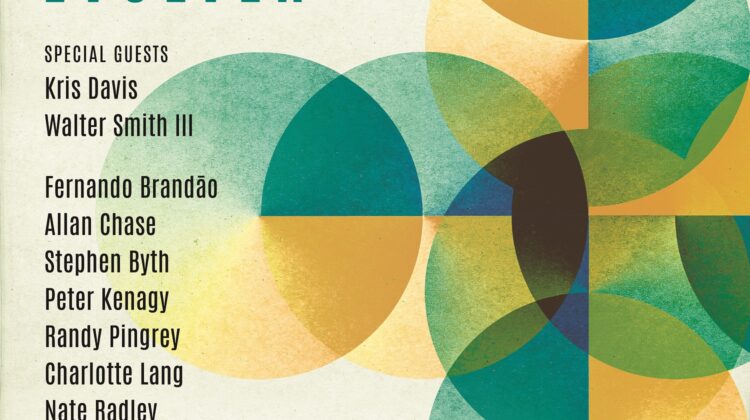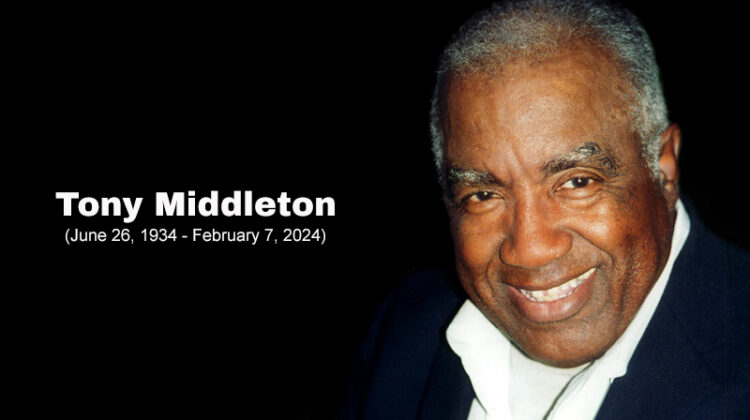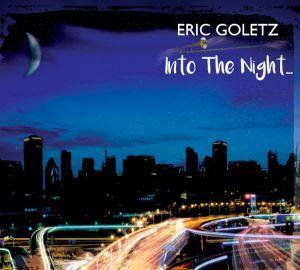Trombonist Eric Goletz’s sextet may be playing standards on his newest album. But it’s anything but standard.
On Standard-ized! all six musicians vivify standards with unremitting energy. Even the album’s title contains an exclamation mark.
!
More importantly, they perform with unmistakable joy. Their joy is apparent even as the digitization inherent in the streaming or CD’s transforms their sound from data into music.
In fact, Goletz’s objective in recording Standard-ized! was to capture the intimacy, excitement, and spontaneity of a live performance, as if Goletz were, at the last minute, calling “Caravan” on the stage in response to an audience’s reaction to the previous tune.
Standard-ized! includes special guests like saxophonist Don Braden, vocalist LaJuan Carter, electric bassist Marco Panascia, and percussionist Joe Mowatt—not to mention the additional backup from, yes, a string section. Such variety suggests the nightclub tradition of calling onto the stage professional musicians in the audience for an impromptu expansion of the booked group…and of the sound. (fwiw, In just such a way, Cannonball Adderley was discovered.)
So, the invigorating good vibrations of Goletz’s group crackle irrepressibly with enthusiastic, cohesive musicianship, no matter how disparate his arrangements or how changeable the sizes of his groups may be.
The culmination of thirty years of performances, compositions, and arrangements, Goletz’s impeccable precision of articulation and his personalization of the trombone’s sound, sometimes as humanistic as a wordless voice, are indeed his own. Fortunately, Goletz began recording his own albums but two years ago with the release of Into the Night. That delay was inexplicable. One would have expected that Goletz must have had his own original repertoire and the ambition to record albums under his name before 2021.
When J.J. Johnson first mastered bebop vocabulary on the trombone in the 1940’s, trombonists who followed incorporated his precision of articulation and his melodic affinity that was influenced by saxophonists.
As does Goletz.
Indeed, Goletz inevitably and seamlessly segues from straightforward melodic introductions to swinging, soulful, and stirring virtuosity. His quickening and quickened notes ripple from smoothly flowing susurration into waterfalls and rapids, sometimes returning to calmness and sometimes remaining at a prestissimo tempo. Or, Goletz may continue to improvise at an ardently fast pace—with his signature accuracy of pitch and note value, and with teaming spirit—over a slower rhythm.
Not only is Goletz’s articulation ceaselessly impressive. So is his tone: warm, inviting, and entertaining. His utilization of articulation and tone combines Johnson’s innovations with the beauty and bright, billowy, sometimes vibrato-laden, “singing” outreach of trombonists like Si Zentner, Tommy Dorsey, Urbie Green, Kai Winding, or Juan Tizol on valve trombone.
When he improvises, Goletz’s tone, mostly in the trombone’s upper range, projects to his audiences burnished optimism and fun. Even as he values the frameworks, familiarity, memorability, and timelessness of melodies, he nonetheless embellishes them with his own fond ornamentations and spur-of-the-moment elaborations.
Inspired by a performance of standards with his backup trio during a private event, Standard-ized! evolved from off-the-cuff calls of familiar songs to a complexly arranged album that expands upon the potentials of the songs that Goletz chose.
Standard-ized! starts with Goletz’s arrangement of Charlie Parker’s “Now’s the Time,” the extended re-harmonized introduction taken at medium tempo. Pianist Jim Ridl and bassist Brian Glassman’s sustain off-the-beat accents that prod the septet into action. Over the walking bass lines, Goletz, as is his mien, develops the first chorus into a rousing, fluttering statement of exhilaration. Then, Braden comes out swinging on soprano sax as a tribute to Parker. He and Goletz briefly swap fours through a single chorus. The track, just under five minutes, provides solo opportunities for Ridl and guitarist Henry Heinitsh, who raise the key signatures from F to G to A. Then the group repeats the introductory motive of shifting tonalities before ending with a shift apparently from F-seventh major to B major (or a concluding note of flatted F-major fifth). Goletz’s introduction for “Now’s the Time” concludes the album too, but only as a 26-second outro at a much slower tempo, the final B briefly sustained.
Despite the enormous plenitude of standards to choose from, Goletz concentrates primarily on three composers throughout Standard-ized! One of them is Charlie Parker, of course: the composer whose song opens and closes the album.
Horace Silver’s “Nutville,” “Jungle Juice,” and “Mayreh” enliven the album with the combination of singable melodies and vigorous, challenging improvisational opportunities. “Nutville” in G minor is a case in point. Mowatt’s percussion adds to the piquancy. Goletz starts the song with an eight-second introduction of the descending phase from the bridge, which immediately rises two octaves to a response of higher tonality. Then “Nutville” proceeds, melodic in the allegro tempo with smooth sustained notes for eight bars, until the four-measure bridge, rhythmically complex with quick and winding notes. This allows for virtuosic solos as the sustains contrast with stirring 16th notes. Braden joins the group for an electrifying, masterful solo, as he does too on “Mayreh,” invigorated again by Mowatt’s percussiveness. Goletz teases the listener with “Mayreh’s” arrangement, which at first moves at a leisurely pace over Glassman’s relaxed walking bass lines. Such relaxation lasts but a minute. Steve Johns’s drum solo doubles the tempo, illuminating Silver’s potential for exploding an engaging melody into propulsive improvisational jubilance. “Jungle Juice,” based upon a repeated six-note vamp in 5/4, remains in throbbing modality with a variety of dense hues and varied rhythms.
Goletz respects the compositions of Michel Legrand too, and he includesin the album “The Summer Knows” and “Windmills of Your Mind.” (On a side note, it’s interesting those songs remain unforgettable while the movies they were written for are almost forgotten.) Rather than expressing the beauty of these compositions with expected mellifluousness—as, say, Tommy Dorsey did with “I’m Getting Sentimental over You”—Goletz lets singer LaJuan Carter interpret the song with soulful intensity while the trombonist provides back-up or interacts with her call and his response. Goletz breaks loose at the track’s ending from background fills to passionate expressiveness through a give-and-take with Carter. (Carter adds poignancy to Goletz’s version of “Nature Boy” as well.”) More in line with Dorsey’s approach, “The Summer Knows” proceeds with euphony, quarter-note chords on the piano, and dramatic crescendos…but with a difference. Rather than restricting the track to his septet, as he did for backing up Carter, Goletz arranged a string section’s accompaniment for additional luxuriance. Enhancing an entirely different musical environment—one that consists of swing, rhythmic complexity, Glassman’s electric bass lines, and tempo changes—the string section contributes its own chorus to the recording of Tizol’s “Caravan.”
For spirited explorations of improvisational opportunities, Goletz plays “Just in Time” with up-tempo exultation, Tom Harrell’s vamp-prodding “Train Shuffle,” and a medium-tempo effervescent version of “Summertime” with the rhythm section’s Latin tinge.
On two of the tracks, Goletz pares down the group to a trio. It’s just Goletz’s trombone, Glassman’s bass, and Johns’s drums on Stanley Turrentine’s “Sugar,” with no chords provided. The individualistic interpretation includes an extended bowed bass solo and a trading of fours by the three. Initially, it’s just trombone and piano (the same instrumentalist—that being Goletz—playing both parts through the wonders of multi-tracking) on Stevie Wonder’s “Overjoyed.” Then, Heinitch comes in at 2:48 to lightly provide occasional fills.
After the outro of “Now’s the Time,” the album includes the musicians’ concluding conversation: “All right, guys. I think we’re done. That’s a wrap. We’re good.”
And then Goletz said these encouraging words: “Until next time.”
Next time will be another time.
Eric Goletz abides.
Artists’ Web Sites: www.ericgoletz.com












